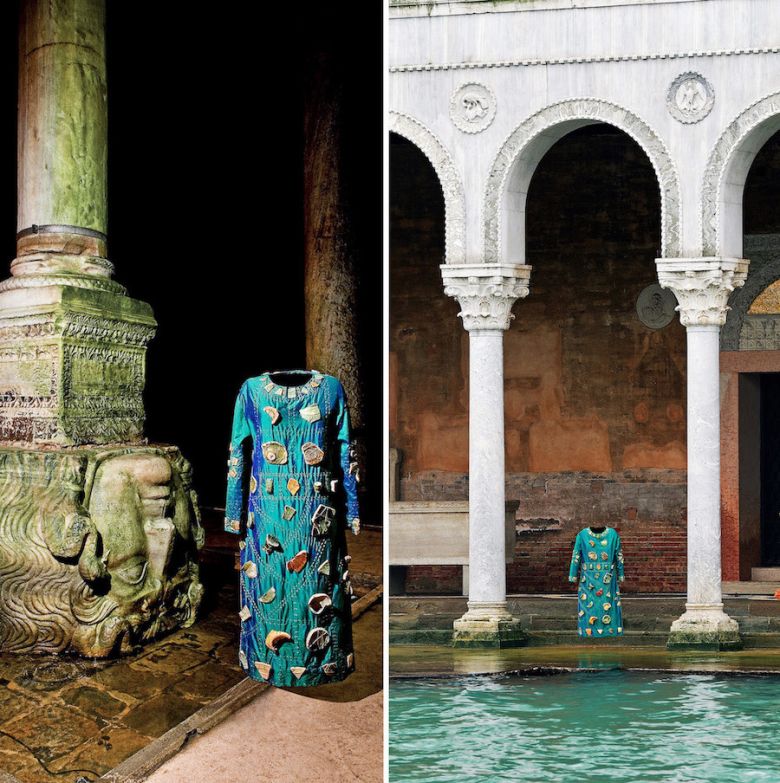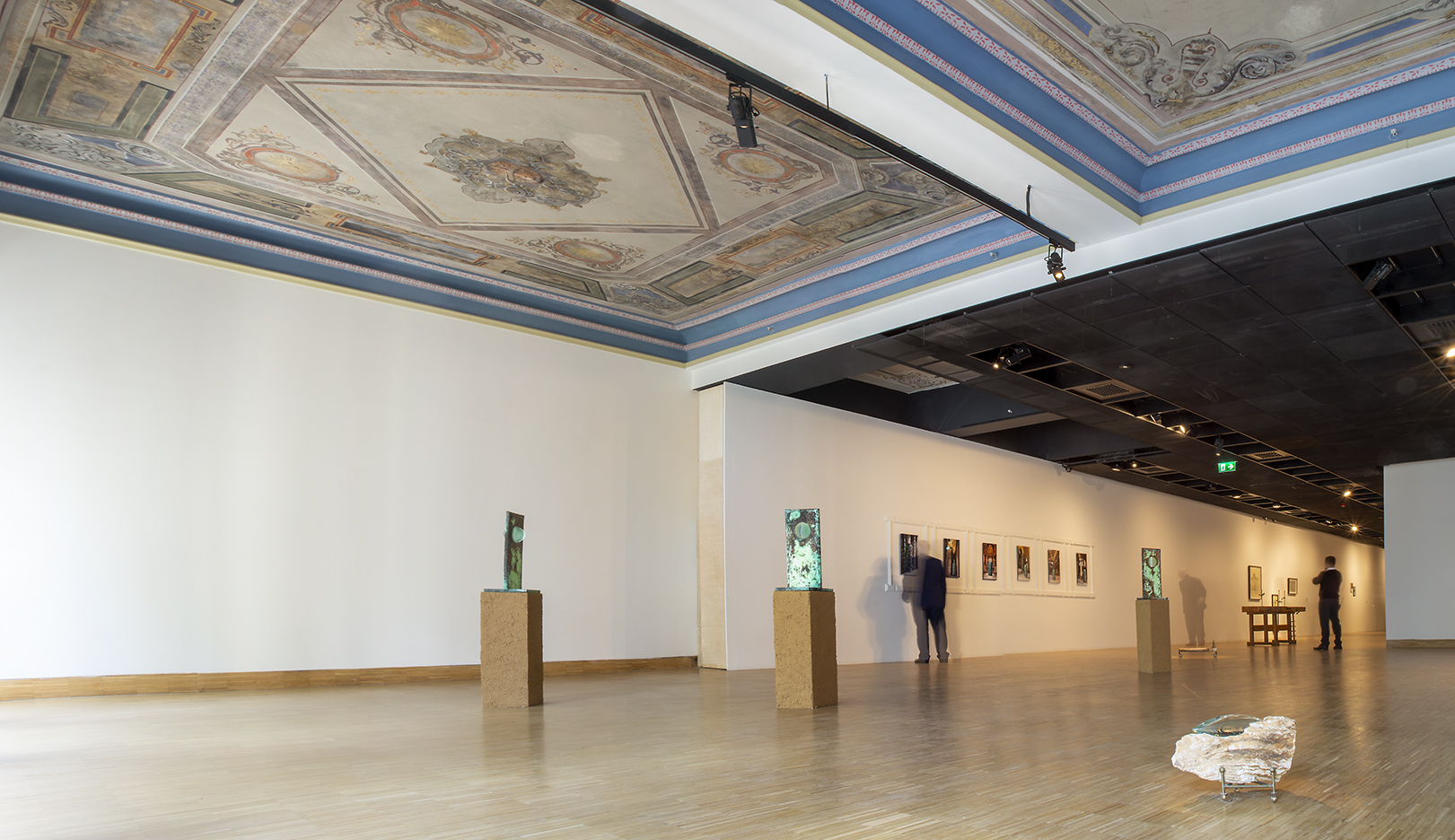Replica of the Original
Salt Beyoğlu
May 22 – August 18, 2019

Photographs from Handan Börüteçene’s series Kendime Gömülü Kaldım [I Remained Within Myself] (1999-2014), Istanbul and Venice. Courtesy the artist and Ayşe Umur Collection.
Floor 2
How do the life histories of people and objects, which are essential to human action, inform each other? Through a selection of fifteen artworks from two private collections, Replica of the Original explores the way “biography” of objects and human stories intertwine one another while continually transformed over time. The exhibition indicates the manifold conventions that occur in the event a collected artwork reenters the public space, where new meanings and interactions form among the other works, the viewers, and the environment.
Replica of the Original centers on the individual presentations by Handan Börüteçene and Mark Dion, whose artistic practices benefit from archaeology and history. Establishing unexpected connections with Turkey’s cultural heritage in her sculptures, installations, photographs, and texts, Börüteçene’s presentation consists of three works: A series of photographs taken between 1999 and 2014, Kendime Gömülü Kaldım [I Remained Within Myself] traces the Byzantine heritage in Istanbul and Venice through the layered story of Moero of Byzantium, first known female poet from Istanbul. Including five sculptures produced in 1989, Bütün Denizler İçin [For Every Sea] reflects the artist’s dialogues with the Hagia Irene, a 4th-century church she visited almost every week for a year, while Armenak Ustanın Marangoz Tezgâhı [The Workbench of Master Armenak] (2000) makes visible the years of labor and experience using magnifying glasses. Dion’s Dig Culture, an installation commissioned in 2011 for Scramble for the Past: A Story of Archaeology in the Ottoman Empire, 1753-1914, the opening exhibition at SALT Galata, comprises a number of archaeology-related found objects. This presentation is accompanied with the artist’s sketch in addition to the photographs of the initial display.
Working with found wooden pieces, Nancy Atakan alters the everyday objects to spiritual protectors by adding on random eye images (2012). Dilek Winchester follows the story of inscription “Mashallah,” carved on a stone for the inauguration of Bosphorus Bridge in 1973 by Emin Barın, a traditional calligrapher known with his compositions in both Arabic and Latin scripts. The installation (2014) implies this stylistic transition in the art of calligraphy along with a visible change that took place in the recent history of the bridge. Focusing on the Galata Tower, the Hagia Sophia, and the Temple of Jerusalem, Cansu Çakar depicts the remnants of the damages and repairs in these iconic structures with her works resembling miniature paintings (2016-2018).
A series of black and white photographs, Ayastefanos’taki Rus Abidesinin Yıkılışı [The Demolition of the Russian Monument at Ayastefanos] (2011) by Aslı Çavuşoğlu investigates a 1914 film, considered as the beginning of Turkish cinema, supposedly documenting the collapse of a monument erected by the Russians in Istanbul right after the Russo-Turkish War of 1877-78. The artist builds a new narrative of the never-seen-before film by reconstructing the missing moments between the two footages of the structure and its wreck. While Cairo-born Iman Issa’s work (2010) offers an unusual alternative to “a monument that has become an embarrassment to its people,” Algiers-born Kader Attia’s photo collages (2014) relate the transformation of the city with the emancipation of individuals, and Haris Epaminonda positions her country Cyprus as a fictional character in her installation of found materials (2009). Delving into the realm of emptiness rather than the past, Pak Sheung Chuen and Laure Prouvost’s works dating 2009 and 2014 respectively challenge the artistic notion of horror vacui, known as “the fear of void,” by giving form to the idea of absence.
Programmed by Amira Akbıyıkoğlu from SALT, Replica of the Original recontextualizes the interlaced historical and urban narratives of works, selected from Tansa Mermerci Ekşioğlu Collection and Ayşe Umur Collection. Starting with a conversation (in Turkish) between Akbıyıkoğlu and the artist Handan Börüteçene on June 13, 19.00 in the Walk-in Cinema at SALT Beyoğlu, details of the public programs in parallel to the exhibition will be announced at saltonline.org and SALT Online social media channels.


